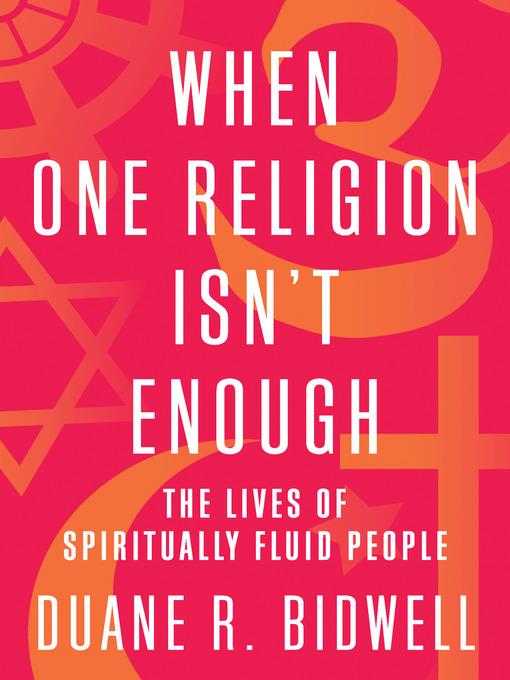
When One Religion Isn't Enough
The Lives of Spiritually Fluid People
کتاب های مرتبط
- اطلاعات
- نقد و بررسی
- دیدگاه کاربران
نقد و بررسی

October 15, 2018
As an ordained Presbyterian minister and practicing Buddhist, Bidwell (practical theology, Claremont Sch. of Theology; Short Term Spiritual Guidance) writes with a first-person understanding and empathy to explore how and why people claim more than one religion as well as strategies to find one's way in a primarily monoreligious culture. He profiles three categories of "spiritually fluid people": those who choose multiple religious identities, those born into a family with multiple religions, and those who combine or collaborate spiritual practices. Finally, Bidwell examines the advantages polyreligious adherents bring to a global culture and clearly makes the case that multireligious identity does not seek salvation or orthodoxy since those terms are specifically Christian. He further discusses the increasing complexity of interreligious dialog, the expansion of conventional religious categories, and the growing acceptance of multiple religious identities. VERDICT Will appeal to spiritual readers seeking an understanding and affirmation of the growing multireligious movement. Strongly recommended for libraries of all types.--Ray Arnett, Anderson, SC
Copyright 2018 Library Journal, LLC Used with permission.

November 5, 2018
In this underdeveloped book, Bidwell (Empowering Couples), professor of practical theology, spiritual care, and counseling at Claremont School of Theology in California, makes a strong argument in favor of embracing more than one religious faith, but insufficiently examines the downsides of religious pluralism. Bidwell uses the term spiritual fluidity to describe people who, in major or minor ways, lean into several faiths. This can include choosing, being born into, or practicing aspects of more than one religion, and ranges from adopting a few alternative faith practices to fully joining two religions or hybridizing different faiths into a new whole. Bidwell states that religious fluidity in the U.S. is more common than ever, but only supports his argument with personal stories (such as the professed faith of basketball player Joakim Noah) rather than with data. Though Bidwell gives examples of human “flourishing” from religious fluidity, he also assigns victim status to religious multiplicity followers, calling the risk of “coming out” as dual faith “enormous.” Bidwell’s examples of religiously fluid people are all very high profile (Noah, Barack Obama) or extremely specialized (Buddhist Christian Paul Knitter), which may leave readers who are neither a bit at a loss. Although his discussions of theology are interesting, his insistence on the threat to multi-religion Westerners comes off as trivial compared to the real persecution of truly marginalized religious groups. Nevertheless, this book will be a good conversation starter for interfaith religion classes.

























دیدگاه کاربران